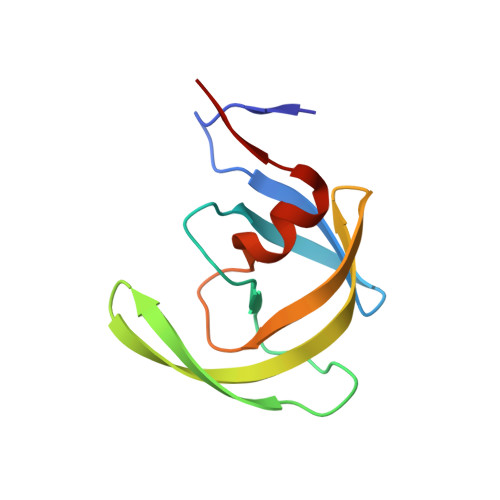Long-Range Electrostatics-Induced Two-Proton Transfer Captured by Neutron Crystallography in an Enzyme Catalytic Site.
Gerlits, O., Wymore, T., Das, A., Shen, C.H., Parks, J.M., Smith, J.C., Weiss, K.L., Keen, D.A., Blakeley, M.P., Louis, J.M., Langan, P., Weber, I.T., Kovalevsky, A.(2016) Angew Chem Int Ed Engl 55: 4924-4927
- PubMed: 26958828
- DOI: https://doi.org/10.1002/anie.201509989
- Primary Citation of Related Structures:
5E5J, 5E5K - PubMed Abstract:
Neutron crystallography was used to directly locate two protons before and after a pH-induced two-proton transfer between catalytic aspartic acid residues and the hydroxy group of the bound clinical drug darunavir, located in the catalytic site of enzyme HIV-1 protease. The two-proton transfer is triggered by electrostatic effects arising from protonation state changes of surface residues far from the active site. The mechanism and pH effect are supported by quantum mechanics/molecular mechanics (QM/MM) calculations. The low-pH proton configuration in the catalytic site is deemed critical for the catalytic action of this enzyme and may apply more generally to other aspartic proteases. Neutrons therefore represent a superb probe to obtain structural details for proton transfer reactions in biological systems at a truly atomic level.
Organizational Affiliation:
Biology and Soft Matter Division, Oak Ridge National Laboratory, Oak Ridge, TN, 37831, USA.















